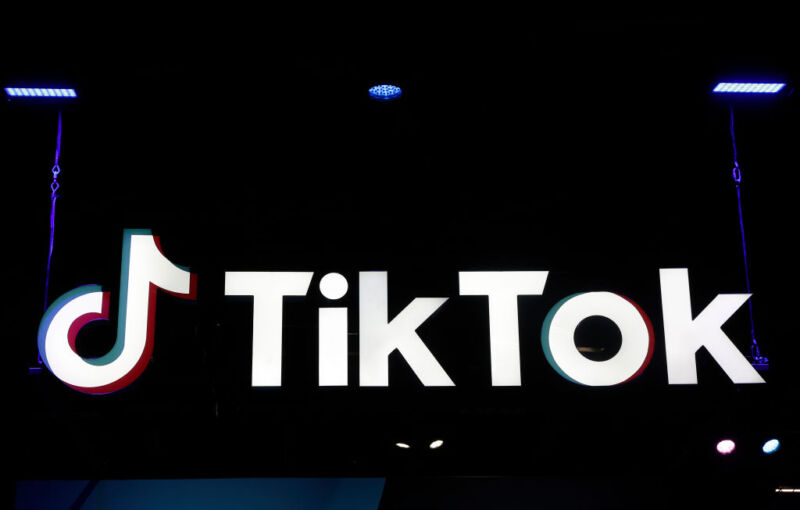TikTok would be banned from US “for good” under bipartisan bill

In September, President Joe Biden announced that TikTok would remain accessible in the US once a deal could be worked out to assuage national security concerns. At that time, Biden said it would take months for his administration to weigh all the potential risks involved in inking the deal. Among detractors of the brewing deal, Senator Marco Rubio (R-FL) and Congressman Mike Gallagher (R-WI) emerged, alleging in a Washington Post op-ed that any deal that Biden arranged with the Chinese-owned social media platform “would dangerously compromise national security.”
Now, Marco and Gallagher have teamed up with Congressman Raja Krishnamoorthi (D-IL) to introduce new bipartisan legislation in the Senate and House of Representatives, formally calling for a ban on TikTok. It’s the only way, lawmakers feel, that TikTok can truly be stopped from collecting sensitive data on Americans for the Chinese Communist Party (CCP) and censoring content to influence elections, sow discord, or potentially even “indoctrinate” users.
“The federal government has yet to take a single meaningful action to protect American users from the threat of TikTok,” Rubio said in a press release. “We know it’s used to manipulate feeds and influence elections. We know it answers to the People’s Republic of China. There is no more time to waste on meaningless negotiations with a CCP-puppet company. It is time to ban Beijing-controlled TikTok for good.”
The bill—officially known as the ‘‘Averting the National Threat of Internet Surveillance, Oppressive Censorship and Influence, and Algorithmic Learning by the Chinese Communist Party Act’’ or the ‘‘ANTI-SOCIAL CCP Act”—is designed to block and prohibit all transactions by social media companies controlled or influenced by “countries of concern.” The legislation specifically names TikTok and owner ByteDance as existing national security threats. But if passed, its provisions would also extend to any social media platform controlled by other US foreign adversaries, including Russia, Iran, North Korea, Cuba, and Venezuela.
TikTok spokesperson Brooke Oberwetter told Ars that the company considers the bipartisan legislation most recently introduced “politically motivated.”
“It is troubling that rather than encouraging the [Biden] Administration to conclude its national security review of TikTok, some members of Congress have decided to push for a politically-motivated ban that will do nothing to advance the national security of the United States,” Oberwetter told Ars.
In talks with the Committee on Foreign Investment in the United States, TikTok reportedly agreed to take steps to address US national security concerns, including storing American user data on US servers to prevent China-based employees from accessing American data. TikTok also said it would grant US-based Oracle permission to monitor recommendations churned out by its algorithm, as well as form a TikTok board of security experts that reported directly to the US government.
TikTok’s motivation to work closely to appease the Biden administration, Oberwetter said, was to ensure that “millions of Americans who use the platform to learn, grow their businesses, and connect with creative content that brings them joy” wouldn’t lose access.
But what Oberwetter describes as a joyful experience that more than 100 million Americans have using TikTok, Gallagher describes in Rubio’s press release as giving Americans access to “digital fentanyl that’s addicting Americans, collecting troves of their data, and censoring their news.”
“Allowing the app to continue to operate in the US would be like allowing the USSR to buy up the New York Times, Washington Post, and major broadcast networks during the Cold War,” Gallagher said.
In their op-ed, Gallagher and Rubio pointed to LinkedIn profiles connecting ByteDance employees with China propaganda outlets, as well as a concerning report from Forbes, showing that TikTok “planned to use the app to monitor the locations of American citizens for undisclosed purposes unrelated to advertising.”
Since then, Rep. Krishnamoorthi joined their cause, saying in the press release that “at a time when the Chinese Communist Party and our other adversaries abroad are seeking any advantage they can find against the United States through espionage and mass surveillance, it is imperative that we do not allow hostile powers to potentially control social media networks that could be easily weaponized against us.”
Krishnamoorthi told Ars that Biden’s deal—which would allow TikTok to continue operating in the US while China still controls ByteDance—seemingly would be too risky. As long as ByteDance is China-owned, ByteDance could be required to hand over data by the country’s 2017 National Intelligence Law, and it’s hard for Krishnamoorthi to see how any deal struck with the US would permit ByteDance to skirt that Chinese law.
Krishnamoorthi said that because of concerns over TikTok data, he’s found that there’s “widespread concern” on “both sides of the aisle” in Congress over how to handle TikTok’s growing influence and popularity in the US. He also told Ars that he’s worried about evidence showing TikTok’s already censored content opposed by the CCP. “It’s a toxic brew of concerns that at this point, I think, is widely shared,” Krishnamoorthi told Ars.
“Recent revelations surrounding the depth of TikTok’s ties to the CCP highlight the urgency of protecting Americans from these risks before it’s too late,” Krishnamoorthi warned in the press release.
For Kirshnamoorthi, the only acceptable way for TikTok to keep operating in the US would be if Biden could make it so that “it’s controlled by an American company or American interests.”
Spokespersons for Rubio and Gallagher declined to comment further.
While Congress weighs the ANTI-SOCIAL CCP Act, Oberwetter said that TikTok plans to keep working to persuade US officials that TikTok isn’t a national security risk.
“We will continue to brief members of Congress on the plans that have been developed under the oversight of our country’s top national security agencies—plans that we are well underway in implementing—to further secure our platform in the United States,” Oberwetter told Ars.
https://arstechnica.com/?p=1904154